National Zoo Keeper Week
It’s National Zoo Keeper Appreciation Week and we’re celebrating the amazing work our zookeepers do for wildlife every day. They are the dedicated keepers, teachers, and caretakers of the animals here at the zoo. They are also some of the most Passionate hardworking people you’ll meet. The Maryland Zoo is fortunate to have expert teams of animal professionals focused on the care of more than 200 species big and small. We’re so grateful for their knowledge, expertise, and commitment which continues to advance animal husbandry and wildlife conservation here and around the globe.
This year, National Zoo Keeper Week is July 16-22. Each day we’ll share new keeper profiles and introduce you to the people making a difference for animals at the Maryland Zoo.
Meet Carolina D.
What area of the zoo do you work in and with what animals do you work?
I am on the Chimp Forest team and work with chimpanzees, lemurs, and monkeys.
How long have you been working at the zoo?
I will have worked at the zoo 3 years, in September.
Why did you choose to work at the zoo?
I graduated college with a degree in animal science, and for some reason never considered zoo keeping a possibility. Once I decided that this was what I wanted to pursue, I got the opportunity to start out as an animal keeper 2 and took it.
What is a typical work day like at the zoo?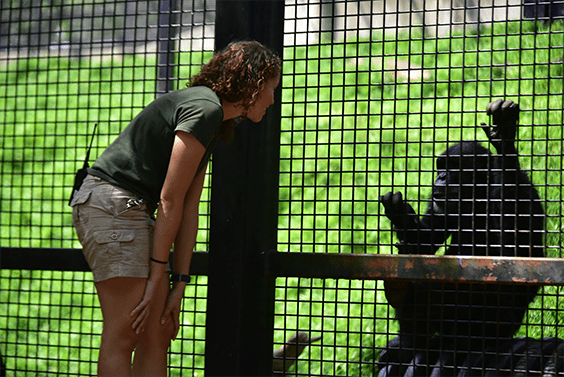
There isn’t ever really a typical day at the zoo. There is always something happening with our animals. Overall though, my job consists of a lot of cleaning, feeding, record keeping, and training every single day.
Is it hard to work at the zoo and why?
Working at the zoo can definitely be challenging at times, for various reasons. You are caring for living creatures, and their safety and health will always come first. Animals are also unpredictable, so you always have to be ready to deal with anything they throw at you.
When did you first start thinking about working in a zoo?
I first started thinking about working in a zoo during college. I originally thought I wanted to be a veterinarian and thought working with exotics at a zoo would be amazing. Instead, I ended up pursuing a zookeeping career after graduation. I knew I wanted to be involved in wildlife conservation and felt that this would be a wonderful place to start.
What steps did you take in order to become a keeper at the zoo?
Aside from a college degree, I had to put in A LOT of hours interviewing, applying, volunteering, and interning at various facilities. I had to take every single opportunity presented to me and make it a learning experience, regardless of how large or small.
What type of person or what skills make for a good keeper?
I think determination and passion are two very important assets to have in order to be a good keeper. You also need to have a keen eye for detail in order to be able to notice even the slightest change in an animal’s behavior and appearance. Patience is also very important. Animals are going to do as they please. As keepers, we have to be prepared to troubleshoot and deal with every curveball they throw at us without losing our patience.
What was your favorite subject in school and why?
In school, I always loved science. Science dealt with animals, evolution, habitats. All the things I loved and cared about growing up.
What hobbies/interests do you have outside of your zoo life?
I love watching movies. We make it a point to go to the movie theater a few times a month. I am also currently working on the Harry Potter series (for the first time).
What do you think is an important reason to support the zoo?
It is important to support the zoo, because the zoo is, often times, the only encounter many people have with these wild animals. The animals in our Zoo are ambassadors for their species. They are here to get the public to care about their wild counterparts. Zoos educate and motivate people to want to make a change in their everyday life, in order to save species. For kids, this may be what gets them interested in science and conservation. This quote by forestry engineer, Baba Dioum, sums it up perfectly:
“In the end, we will conserve only what we love, we will love only what we understand, and we will understand only what we are taught.” – Baba Dioum

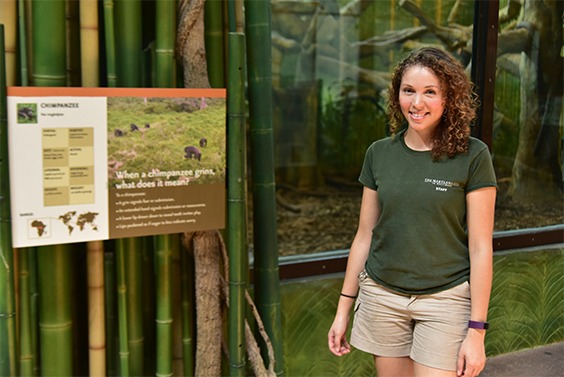
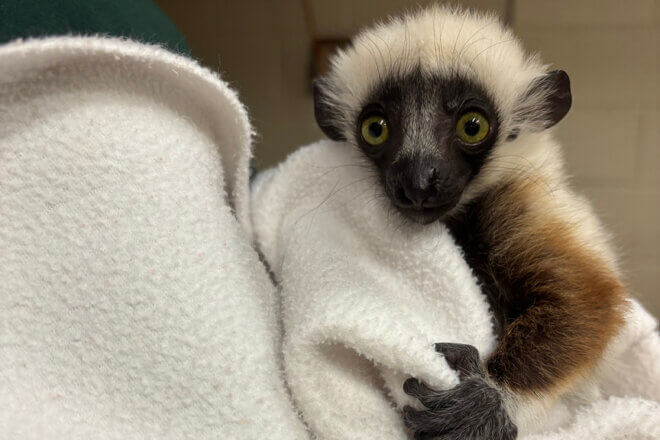
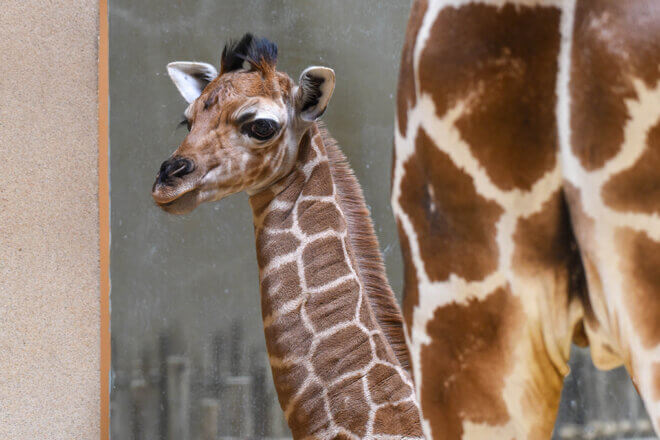
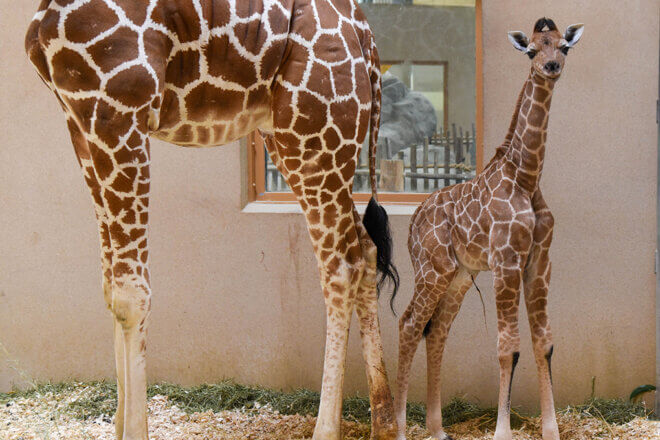
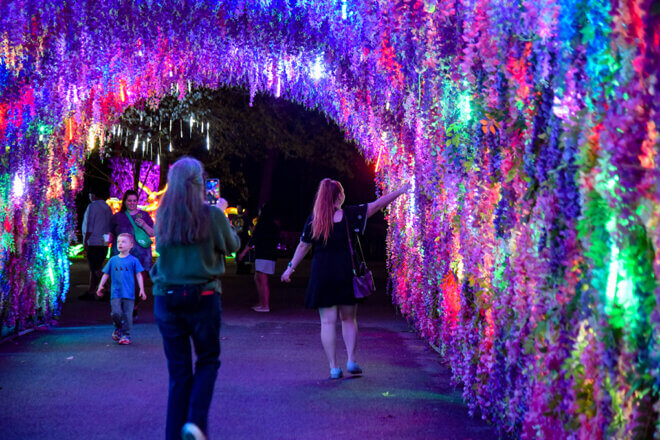
Share this article